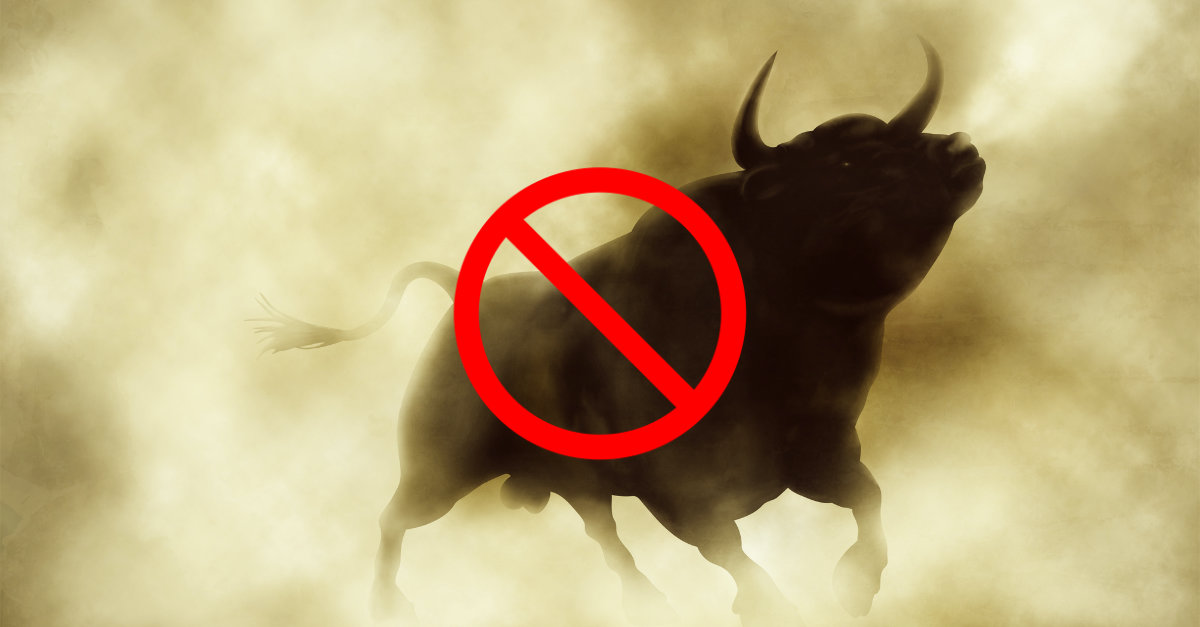Equity markets have bounced well over 20% since the lows just over a month ago, so technically we are already in a new bull market.
With peak new cases now behind us, the economy agitating to reopen and governments starting to ease restrictions, is the massive fiscal and monetary stimulus in the pipes about to prove the bulls spectacularly right?
No, the bulls are wrong, and it is now time to think and invest differently, according to Dr Jerome Lander. In this interview, Jerome explained why he thinks the bulls are wrong, before saying the possible lows in this bear market are far below current levels:
"... it's very easy to come up with figures around, 1600 or 1800 on the S&P 500, Obviously we're up at 2800 on the S&P at the moment".
Citing the risks of a still undefeated virus, credit defaults and geopolitical risks including the prospect of conflicts, he paints a future vastly different to the past.
In this new paradigm, he argues, investors face long-term asset price deflation as fundamentals reassert themselves, and that investors will require a completely different approach to the one that has worked for the last 40 years.
In the space of just two months, equity markets set their quickest bear market in history before forging a new bull market. Against this incredible volatility, you are right to be nervous, says Jerome, who concluded with a message for investors:
It's understandable that investors are confused because lots of things are changing and it's important that your investment approach also changes, that would be my message.
Edited transcript
"First up, I think the bulls are pretending this virus is solved, and that the problem's gone away. The problem hasn't been answered. Although we've reached a peak in daily new cases, we still haven't got an effective treatment or an effective vaccine for the virus”.
“Secondly, we have valuations at all-time record forward earnings levels (outside of the tech bubble), notwithstanding the economic settings we have.
And thirdly, I think the bulls ignore the overall picture, which is that we have had unsustainable amounts of debt driving our economic growth for many years now and that we may well be coming to the end of a long-term debt cycle. This makes it very difficult to be optimistic about the returns that you're going to get from traditional asset classes.
Now, this bear market doesn't have to be like any other bear market we've seen before. It can be different. The thing that's of concern to me I guess is that many investors are assuming that we're going to go back to normal or that the asset prices are justified, and I think that they're not.
So, investors really should be conscious of that. In the back of their heads they should be thinking, am I really safe if I just go and buy a broad basket of equities, if I only invest traditionally, am I safe? Or am I taking the risk that one day these asset prices that are on the back of this massive financialisaton - easy money that central banks have provided - gets collapsed towards the size of the real economy.
The real question mark out of this is whether we're going to get one more bubble, whether they manage to float those asset prices higher again into an even bigger bubble. How long will that last if they manage to do that or whether this is it? This is the end of the long-term debt cycle, and it will change everything.
I think that quite clearly we can mount a robust case for why real returns will be meagre from here looking forward based on valuations. The unsustainable economic settings and based on all the risks that the world's facing just aren't priced into markets.
Investors don't want a roller coaster ride. They want to have absolute returns with low risk of substantial losses and have their money protected and genuinely diversified.
If you think about traditional assets, the original asset classes are things like equities, bonds, cash and property. The ones that make people feel comfortable, mainstream and most used in a traditional paradigm.
If you think about alternatives, they're everything else. So, alternatives can be alternative asset classes. Things like precious metals are often considered alternatives. Some people even think about unlisted versions of listed asset classes as being alternative. I don't see them as alternatives. I see them as unlisted versions of the listed version, but they're still exposed to the underlying economic risks.
When I think about alternatives, I'm thinking more about liquid alternative - ways of taking traditional asset classes but operating with them very differently. It's about taking it down to another level and saying, within that asset class, what is there that I want to own? What is there that I don't want to own? What is going to outperform something else? So, you're getting a different return stream out of it. That's an alternative strategy in my book.
My message to investors will be just that, really think about whether you've got the right alignment for what you're trying to achieve. And is there a better way? Is there a different way? And do I need to think, do I need to make sure I've got the right investment partners for that?"
This article originally appeared on Livewire.
Learn about Dynamic Asset's adviser investment strategies.



